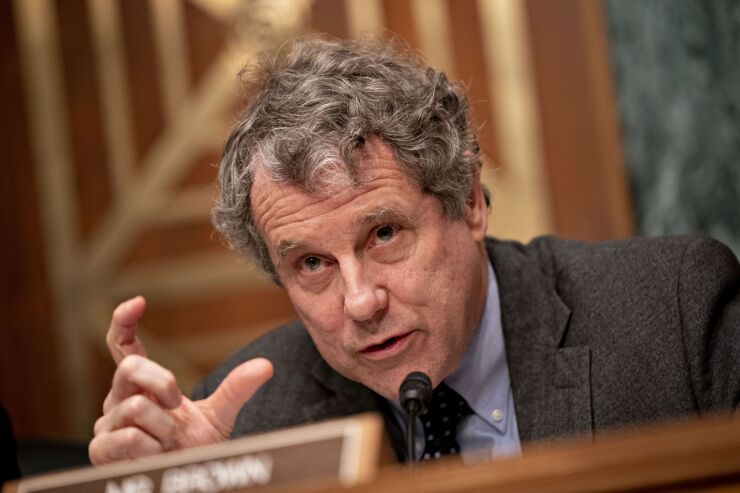WASHINGTON — The top Democrat on the Senate Banking Committee is calling on banks to suspend stock buybacks in light of the coronavirus outbreak and its impact on the economy.
As U.S. stocks continue to plummet as a result of the coronavirus, Sen. Sherrod Brown of Ohio said on the Senate floor Thursday that banks should suspend stock buybacks and invest in their communities.
Read more:
“We have to act now, to make sure we can focus all our efforts on preventing this virus from spreading, and don’t have one crisis stacked on top of another,” Brown said. “One way we can do that is to suspend bank stock buybacks. Banks need to be investing in their communities right now, not investing in their CEOs’ stock portfolios.”
Brown's remarks came during another brutal trading day, as both the Dow Jones industrial average and S&P 500 were down more than 7% as the market opened.

In his Senate floor remarks, Brown referenced an ongoing $30 billion buyback at JPMorgan Chase and a $23 billion buyback at Wells Fargo.
“That money would be better spent investing in small businesses and medical research and relief for people who need help,” Brown said. “The reason big banks are supposed to have that money is so they can keep lending and keep communities afloat when we have crises like this one.”
It’s not the first call from a member of Congress for banks to halt stock buybacks this week.
At a House Financial Services Committee hearing Tuesday, Rep. Brad Sherman, D-Calif., asked Wells Fargo CEO Charlie Scharf if the bank would commit to halting stock buybacks and dividends until he is better able to assess the impact of the coronavirus.
But Scharf would not commit to suspending stock buybacks and said, “We're going to run the bank the way we think is proven with our regulators.”
A banking industry source told American Banker that banks would be “cutting off money to ‘Main Street’ ” if they halted stock buybacks because roughly half of the U.S. population owns stocks either directly or in retirement savings accounts. The source added that banks are already highly capitalized.
Top executives from Bank of America, Citigroup, Goldman Sachs, JPMorgan Chase, Truist Financial, U.S. Bank and Wells Fargo met with President Trump Wednesday to





